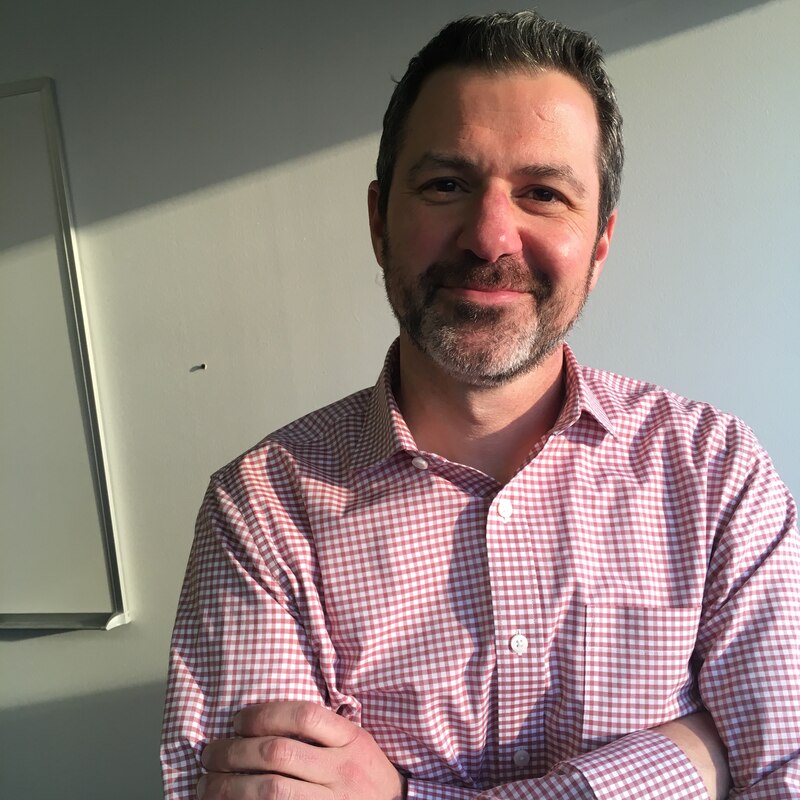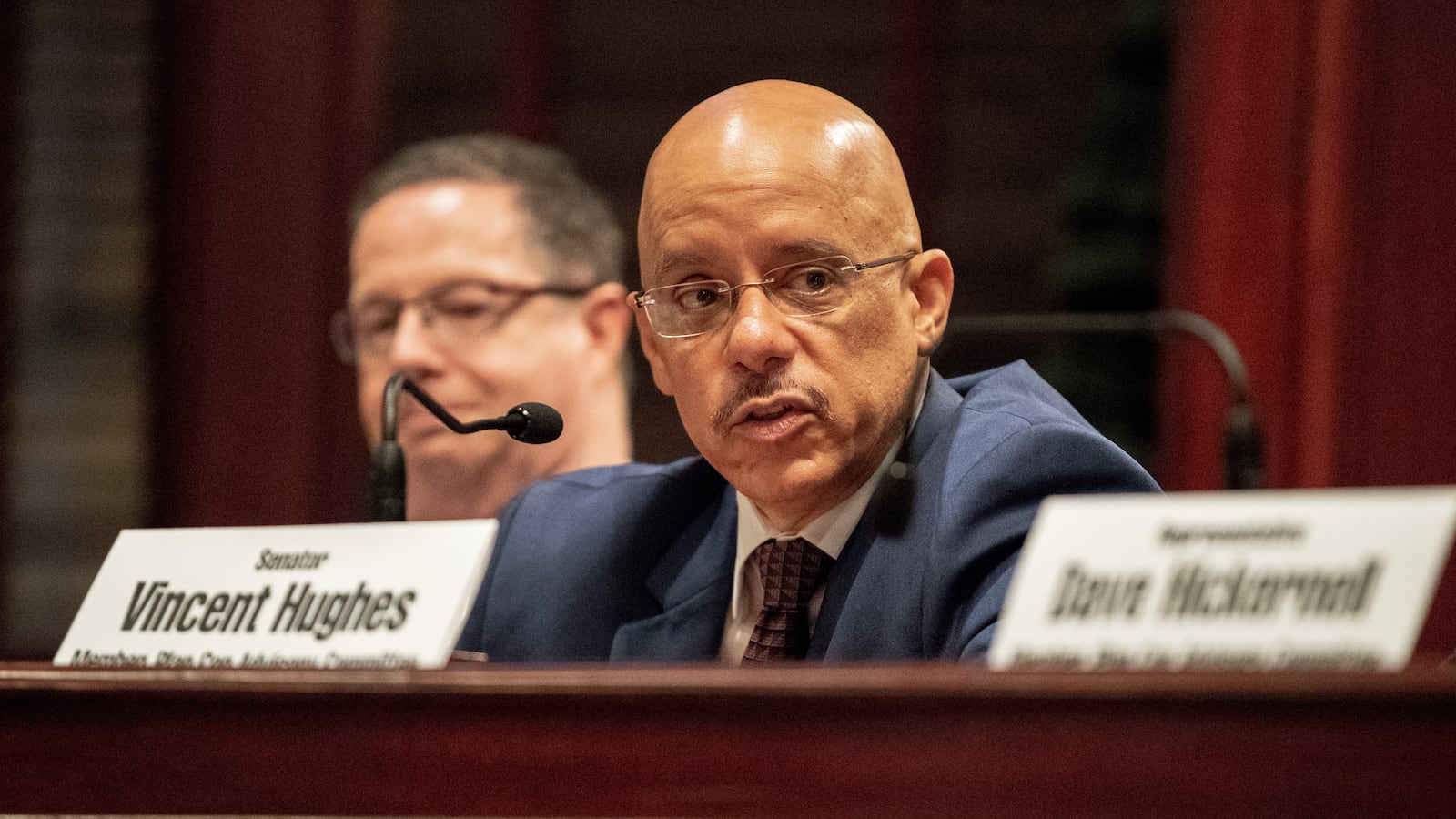This article was originally published in The Notebook. In August 2020, The Notebook became Chalkbeat Philadelphia.
Proponents of trauma-informed education emphasize that the approach is not simply an additional program that fits into an existing school structure. Rather, it is an entirely new systemic approach that affects every aspect of school operations and personal interactions.
In 2004, a lawyer and former special education teacher named Susan Cole was concerned by a wave of student expulsions in Massachusetts public schools. To help address it, she helped found the Trauma and Learning Policy Initiative (TLPI), a collaboration between Massachusetts Advocates for Children and Harvard Law School.
Many of the expelled students came from neighborhoods and backgrounds affected by trauma and violence, and in many cases, Cole said, these issues were being overlooked.
In the years since, TLPI has worked to help schools across Massachusetts create trauma-sensitive environments, advocated for legislative support for this goal, and engaged in a public education campaign “to teach policymakers, educators, administrators, health and mental health providers and parents about the impact of trauma on learning and the need for trauma-sensitive schools.”
TLPI helped bring about the passage of a law in 2014 to establish a statewide “safe and supportive schools framework.”
“There are problems inherent in larger systems,” Cole said. “It’s not ‘step one, two, three.’ It’s spreading it slowly, school by school. It’s community-building.”
Although the task of scaling up trauma-informed education by definition falls most heavily on school districts, states and universities are also playing a vital role.
Partnering with a university
Brockton, Mass., public schools, which have gained a national reputation in trauma-informed education, have a partnership with Lesley University, a leading teacher training college in nearby Cambridge, to provide continuing education for school personnel.

The district has established a Trauma Advisory Board, which includes not just educational and social services representatives, but also the District Attorney’s Office.
Sal Terrrasi, the district’s executive director of pupil personnel services, cautions, however, that there is no formula that works for every school or classroom. And he said that efforts to impose one will mostly result in the “de-skilling” of teachers, in which they will run their classrooms according to strict rules rather than using their best judgment to respond to specific situations.
In Pennsylvania, several Philadelphia public schools have formed partnerships with the University of Pennsylvania and Temple University.
The Philadelphia Healthy and Safe Schools initiative at Temple University lists short-term goals such as creating a positive school climate, reducing student behavioral outbursts, and reducing suspensions.
Longer-term goals include reducing the dropout rate, improving the college acceptance rate, and improving academic performance.
At Drexel University, the Dornsife School of Public Health and Sandra Bloom, an associate professor of health management and policy, have provided intellectual leadership in trauma-informed education. The university is also designing a manual for school police officers.
Pennsylvania moves toward trauma training
Last year, the Pennsylvania General Assembly passed legislation mandating training in trauma-informed education for school employees.
“People now are just more receptive,” said State Sen. Vincent Hughes, a Philadelphia Democrat who had been advocating on the issue for several sessions.
Dana Milakovic, a mental health specialist with the state Department of Education, said that a working group tasked with developing specific steps that the department will take under the law plans to release its report in the spring.
And the Pennsylvania Commission on Crime and Delinquency’s grant program now covers trauma-informed education.
Research for Action’s 2019 report called Trauma-Informed Schools in Pennsylvania found that “despite the documentation of the prevalence and impact of trauma among children, there is little independent research on established intervention models.”
Advocates know that they will fare better in the battle for scarce resources once they have studied the effectiveness of trauma-informed education programs.
Community-wide approaches
In Pottstown, Pa., researchers supported by the Scattergood Foundation and the Yale School of Medicine are exploring the impact of community-wide approaches to trauma that mesh with the education sector.
The research team, led by Samantha Matlin of the Scattergood Foundation, found that “despite intense interest and activity in seeking to build resilient, trauma-informed communities, there is little or no empirical evidence to do so. … The effort to build resilient, trauma-informed communities is in its earliest stages.”
This, they said, was in sharp contrast to trauma-informed approaches “for specific trauma-related clinical disorders.”
Another approach is being taken in a collaboration between the University of Pennsylvania and four School District of Philadelphia schools supported by the National Institute of Justice.
Evaluations of trauma training have often involved teachers and other school personnel simply reporting how what they have learned has affected them. This study aims to go beyond that.

Researcher Ryan Fink is with the Consortium for Policy Research in Education at the University of Pennsylvania. (Photo: Paul Jablow)
The lead researcher, Ryan Fink, of the Consortium for Policy Research in Education at Penn, said that much of the effort is designed to determine what classroom strategies are feasible to adopt and what it takes to bring about changes in classroom practice.
At one of the schools, Sheridan Elementary, principal Awilda Balbuena said that in classrooms where teachers reported a high incidence of behavioral issues, observers found that trauma-sensitive language was not being used.
The project will evaluate how the videos they have developed, individual coaching, and other types of training are translated into what happens in the classroom.
“So much of it is about implementation,” Fink said. “Is it feasible to have schools do this? Which part is feasible? What would it take them to do it?
“Did anybody watch the videos? Did anybody do anything with it? Do you think it’s effective? Could you see yourself continuing to do this?
“And in the end, we’ll look at [student] achievement … climate, attendance, suspensions.”
The Notebook is one of 19 news organizations producing Broke in Philly, a collaborative reporting project on solutions to poverty and the city’s push toward economic justice. Read more at https://brokeinphilly.org and follow us on twitter @BrokeInPhilly.

